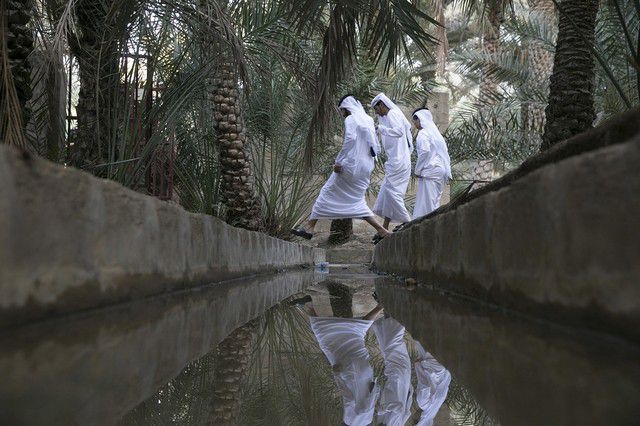Lack of Awareness Risks Abu Dhabi Water Reserves
Published on by Water Network Research, Official research team of The Water Network in Social
Natural water reserves in Abu Dhabi will be exhausted within 50 years because residents are unaware that they are using too much, a new study says.
Underground aquifers must be allowed to replenish or they will be dry by about 2066, said Prof Gokce Gunel, a lecturer in anthropology at Columbia University.

People must use less water and other sources must be found for irrigation and nourishing gardens, Prof Gunel wrote in The Infinity of Water: Climate Change Adaptation in the Arabian Peninsula.
The average daily water use per capita in the emirate has been estimated at about 550 litres a day, more than twice the global average of 200 litres.
Among the measures put in place to battle that high use was a cut in the government subsidies for water and power.
And the Environment Agency Abu Dhabi, or Ead, is playing its part. Anyone wanting to build a well has to apply to Ead for permission and the agency is introducing a plan to use treated sewage water for farms.
“We need to give it time to replenish, we need it to become of better quality and we need more information," Dr Mohamed Dawoud, Ead’s adviser for water resources, said this year.
Ead said irrigating Abu Dhabi’s plants, gardens and farms would exhaust ground-water reservoirs and Dr Dawoud said treated sewage could be a way to alleviate the stress.
Problems with supply are not restricted to Abu Dhabi, as water use across the UAE and the Gulf is among the highest in the world, exacerbated by low prices.
The study said that as long as prices remained low, incentives to use less water were unlikely to succeed.
Dr Steve Griffiths, vice president for research at the Masdar Institute of Science and Technology, said any changes must be gradual.
“It is true that energy and water prices remain low in the UAE and wider GCC, but we have clearly shown that best practices in subsidy reform requires gradual price increases with lots of public communication and support, as needed, for those economically impacted by reform measures," Dr Griffiths said.
The study said the UAE relied on technological solutions, such as desalination, to address water scarcity.
“We have major programmes involving desalination, recycling and reuse of water and rainfall enhancement in support of sustainable water supply," Dr Griffiths said.
“The work we do in each area has a great deal of relevance to efficiency and conservation of water."
But the study found that relying on technological innovation helped to establish a knowledge-based economy in encouraging the local population to promote technology and know-how that could be exported.
“For energy and water, the first priority at Masdar Institute is managing demand through efficiency or conservation. The second priority is addressing sustainable supply," Dr Griffiths said.
Source: The National
Read More Related Content On This Topic - Click Here
Media
Taxonomy
- Water Scarcity
- Water Scarcity In Desert area
- Water Supply